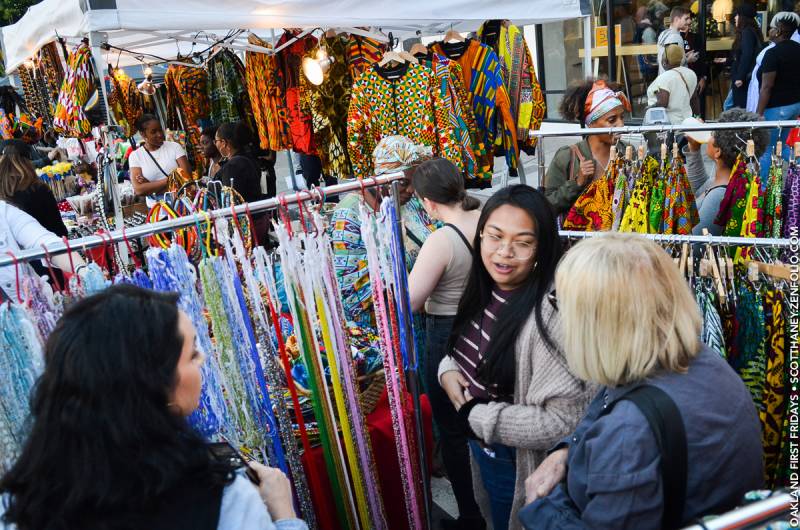“The cost of the event since we came back from COVID just continues to rise,” McGhee said. “If we don’t take some time to work strictly on funding and securing that, we will just deplete our funds.”
She said bathroom services, street closures and barricades, and other rising costs due to inflation have all been difficult for the organization to keep up with after the pandemic.
During the three-month break, McGhee said she and other organizers will be recruiting new donors, analyzing its budget and regrouping with vendors — many of whom opened brick-and-mortar shops after starting as a pop-up at the event.
Their goal is to raise at least $20,000 per month to make the event more sustainable moving forward.
“We want to be here for a long time,” McGhee said. “It’s no secret that crime is on the rise, not just in Oakland but everywhere. To have us safe [at an event] that’s fun and positive, in a world that is chaotic right now, is priceless.”
Oakland First Fridays started in 2006 as an art party and has since evolved into one of the town’s most beloved community events. It’s expanded dramatically over the years, from the “The 23rd Street Fair,” formerly organized by the Rock Paper Scissors collective, and later with the backing of the Community Council and the Art Murmur gallery collective.
Since 2013, the nonprofit Koreatown/Northgate Oakland Community Benefit District has run First Fridays.
First Fridays organizers now seek donations and new revenue streams to get the event back on track in Spring 2024.
“We are committed to returning stronger than ever, and we ask for your patience, understanding, and continued support during this difficult period,” organizers wrote in their statement on Tuesday. “Together, we can work towards preserving and revitalizing this vital cultural celebration for our city.”
This isn’t the first time Oakland First Fridays has struggled to stay afloat. In 2021, the event was in jeopardy when it couldn’t afford the Oakland Police Department’s security fees.
“This event was started by the community, and it’s going to take the community to rally around to stay,” McGhee said.
KQED’s Natalia Navarro contributed to this story.

